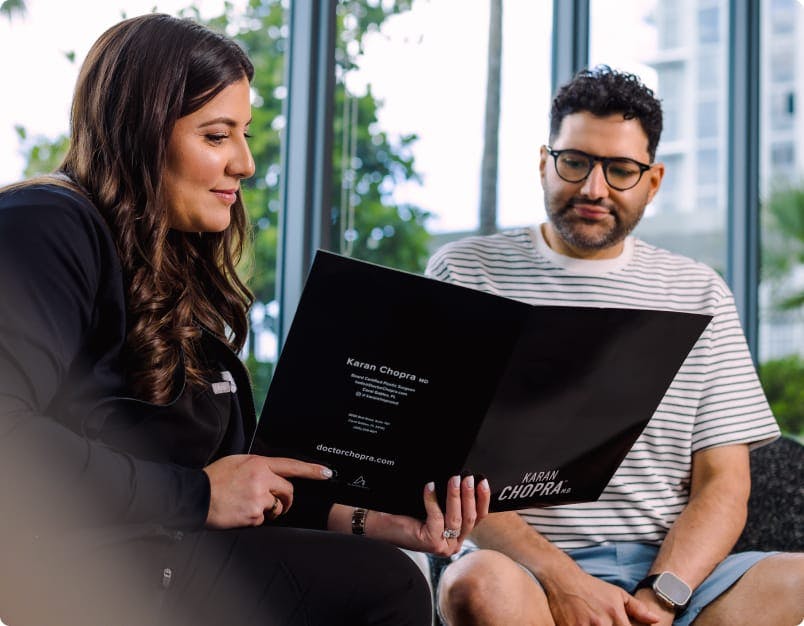

Beauty Uncompromised Request a Private Consultation


When it comes to facial cosmetic surgery, precision is everything. From subtle enhancements to dramatic rejuvenations, a successful outcome depends on a deep understanding of facial anatomy. One factor that often goes underappreciated is the topographic thickness of facial skin. Dr. Karan Chopra, a board-certified plastic and reconstructive surgeon in Miami and founder of Chopra Plastic Surgery, has taken this essential aspect of surgical planning to new heights.
Dr. Chopra is the lead author of a pivotal study, "A Comprehensive Examination of Topographic Thickness of Skin in the Human Face," which meticulously maps the skin’s variable thickness across 39 distinct anatomic regions of the face. The research delivers critical insights that empower surgeons to refine their techniques, better predict outcomes, and deliver safer, more precise results.
Let’s explore what makes this study so important and how it reflects Dr. Chopra’s dedication to innovation, education, and patient care.
The face is not a uniform canvas. Each area has its own unique properties, and skin thickness can dramatically influence everything from the placement of injectables to the intricacies of facelift surgery. Dr. Chopra's research brings clarity to these differences, providing a detailed topographic map that helps guide surgical decisions.
Some of the most common facial procedures can benefit significantly from a detailed understanding of skin thickness:
Dr. Chopra’s team conducted a cadaveric study using 10 specimens, collecting full-thickness biopsies from 39 facial locations. Through microscopic analysis, they measured the dermis and epidermis, creating one of the most comprehensive facial skin thickness maps to date.
Their findings confirmed long-held assumptions—such as the upper eyelid having the thinnest skin—but also revealed new insights. The lower nasal sidewall, for instance, emerged as the area with the greatest total skin thickness, while the posterior auricular region had the highest dermal-to-epidermal ratio. These findings offer new guidance for flap selection in reconstructive cases and inform aesthetic strategies across a variety of procedures.
This research underscores Dr. Chopra’s commitment to evidence-based innovation. It also opens the door to future studies examining how factors like age, gender, and ethnicity influence skin thickness—enabling even more personalized surgical strategies.
At Chopra Plastic Surgery, this level of expertise isn’t confined to the lab. It informs every consultation, every surgical plan, and every outcome. Patients benefit from Dr. Chopra’s deep anatomical understanding, as well as his dedication to natural-looking, refined results that honor each individual’s unique features.
Dr. Karan Chopra's commitment to advancing the art and science of plastic surgery is evident in every aspect of his work—from academic research to personalized patient care. If you're considering facial rejuvenation and want to partner with a surgeon whose precision is grounded in cutting-edge research, Chopra Plastic Surgery is your destination.
Contact our Miami office to schedule your consultation and experience firsthand what makes Dr. Chopra one of the most respected names in facial plastic surgery today.
Chopra, K. A Comprehensive Examination of Topographic Thickness of Skin in the Human Face. Aesthetic Surgery Journal, 35(8), 1007-1013. https://doi.org/10.1093/asj/sjv079